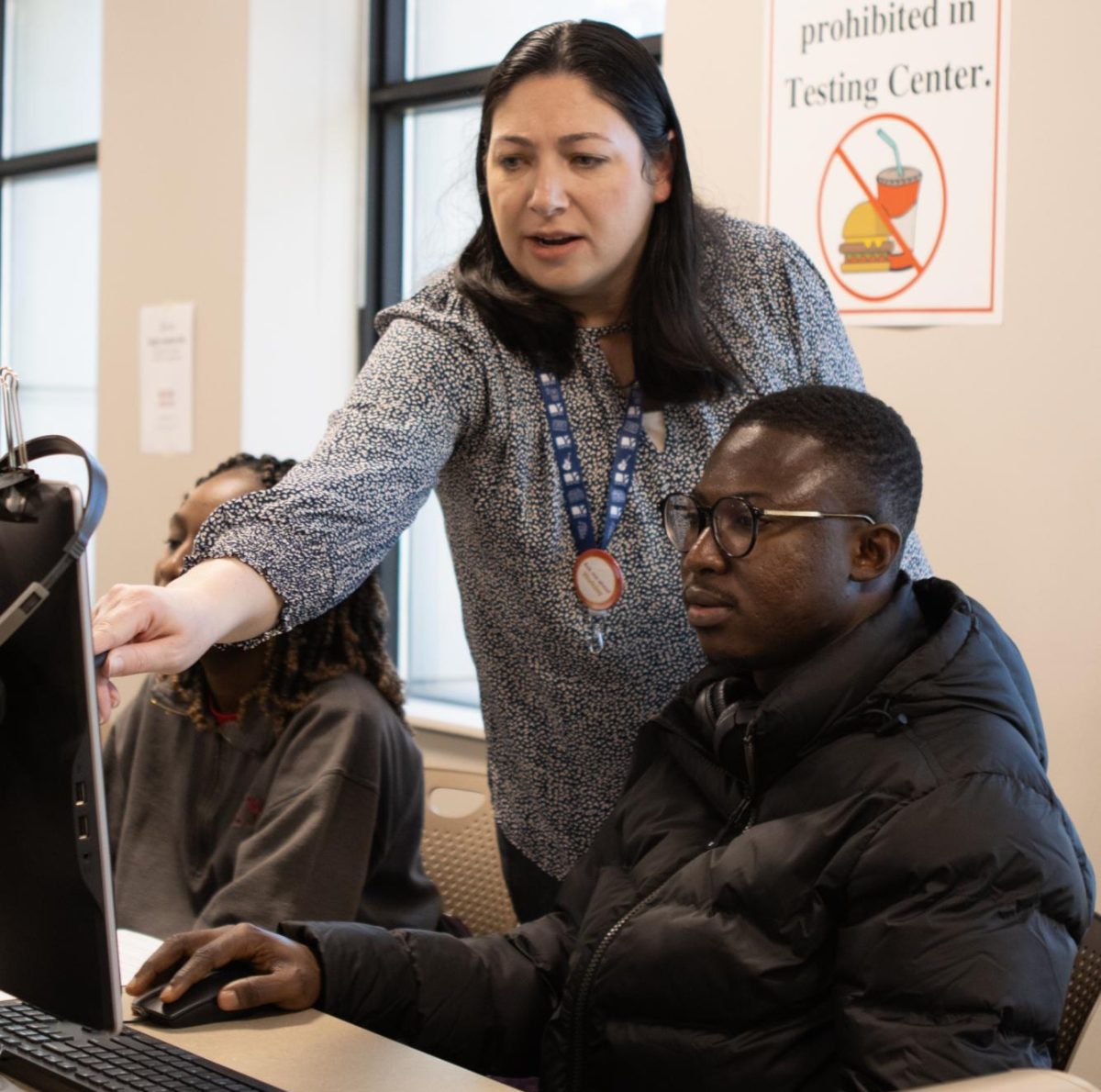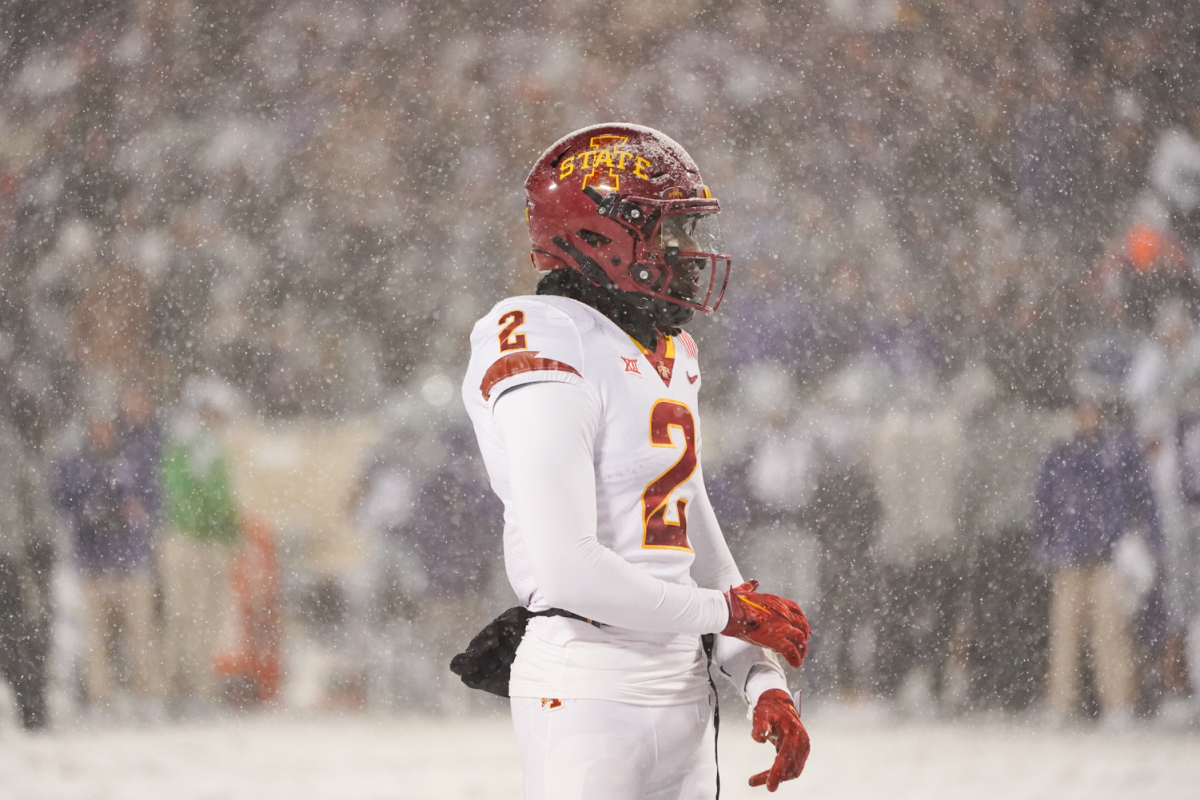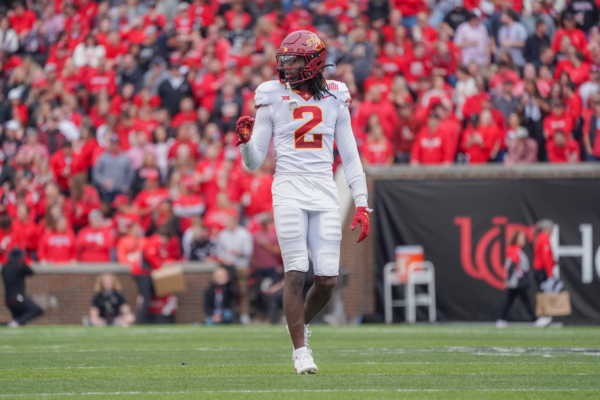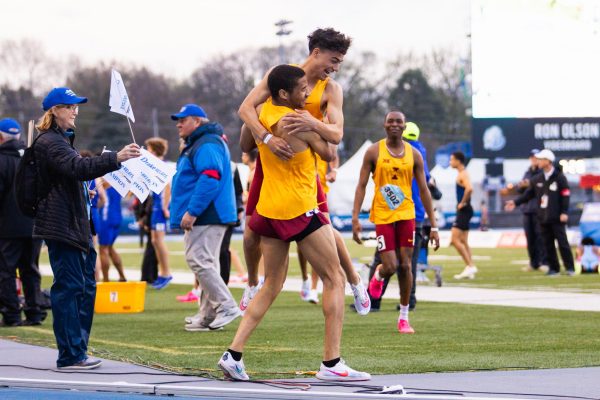Coach of 21 years looks back at career
July 5, 2007
For former ISU women’s track and cross country coach Dick Lee, life and coaching are about the moments that make them up.
One such moment was the beginning of his coaching career, which started in 1986. He took over for former coach Ron Renko after a plane crash killed Renko, his staff and some athletes in 1985. He is currently living another important moment – the unexpected ending of his 21-year ISU career, when his contract was not renewed following the season.
“I don’t remember everything that happened at a meet or a race, but I remember moments,” Lee said. “Some are very trying moments, but you know you are going to be faced with those things and it’s how you deal with those things, and those moments, and you know there will be better times ahead. This is one of those right now.”
The future of Lee’s coaching career is in question, as he has no plans of taking a head coaching job in the next year. He and his wife, Ann, want to stay in the Ames area, close to both of their parents, who live in Minnesota.
“We have some family situations; we’re not going to move farther away from where our families are located in Minnesota. We’ve also been in Ames for so long that we have some ties here,” Lee said.
“I just don’t see a coaching situation opening up that I would want to jump into in the next year. That’s not to say it won’t happen down the road.”
Despite the uncertainty, Lee said his wife is looking forward to seeing him a little more often.
“She’s kind of looking forward to me being around some weekends this coming year,” Lee said. “As much as she’s known coaching has been my life, she’s ready, probably, for me to have a little different time frame as to what my next career may tie up of my hours and days per week.”
Lee was hired at Iowa State out of grad school as an assistant coach in 1979. He left in 1984 to become head coach at Wartburg College, before coming back to Iowa State in 1986. After the plane crash, the athletics department wanted someone with ties to the program to take over.
“No one was prepared for what they went through that first year, but they dealt with it,” Lee said. “It made you realize that running was not the most important thing in your life. It’s something that you do, but there are other things more important at that point in your life.”
After 21 years, he has seen his runners take All-American honors 59 times and win 54 individual conference championships. Those things are important, Lee said, but equally as important were the people who defied odds in other areas of life.
“Some of the memories are of kids who made it through school that weren’t the best runners and even struggled to make the travel squad, but if it hadn’t been for the team they probably would not have graduated with a degree,” Lee said. “It wasn’t necessarily what we did as coaches, but they had other kids on the team that looked out for them. They had a support group to help them through.”
The moments that stick out the most for Lee are just being there for the athletes, Lee said.
“I’ve always said that the reason we coach is not to get certificates put up on the wall, but we’re in a people business,” Lee said. “We’re educating young people during a stage of their development as young adults. Even though we’re coaches, we’re educators too, even at the Division 1 level. We’re role models for them.”
















